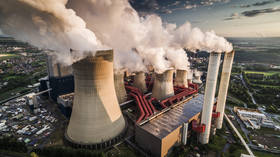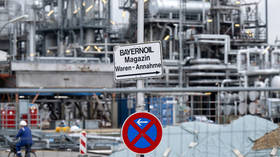Germany spending billions to replace nuclear power

Germany is set to spend €16 billion to construct four gas-fired power plants as it seeks to ensure an adequate supply of electricity after scrapping its nuclear reactors, the Economy Ministry announced earlier this week.
This comes as part of a major overhaul of the country’s energy grid, according to the ministry.
The new gas-fired power plants will subsequently be converted to run on hydrogen between 2035 and 2040. A market-based capacity-boosting mechanism will allow power generation to be expanded by 2028, German officials said in a statement.
The plants will have a total capacity of up to 10 gigawatts (GW), which will come “in addition to the consistent expansion of renewable energies,” and are expected to be vital to ensuring steady electricity supplies “even in times where there is little sun and wind.”
German energy utility Uniper, which will reportedly be involved in the construction, said it was “relieved” that the decision to build the new plants has been made, adding that “swift action is urgently needed because the approval process and the actual construction of power plants and storage facilities will take several years.”
The EU’s top economy, which prior to the Ukraine conflict fueled its industry with Russian gas, had to ramp up electricity imports last year after the government decided to scrap nuclear power as it moves toward renewable energy sources.
Last April, Germany shut down its last three nuclear reactors despite warnings that doing so would actually cause more fossil fuels to be burned.
Germany has set itself a target of cutting greenhouse emissions by 65% by 2030, a plan even more ambitious than the one set by the EU as a whole. However, a report last year by the Federal Environment Agency showed that the goal is likely to be missed as the protracted energy crisis has pushed the switch to renewables in the country down the agenda.
For more stories on economy & finance visit RT's business section













